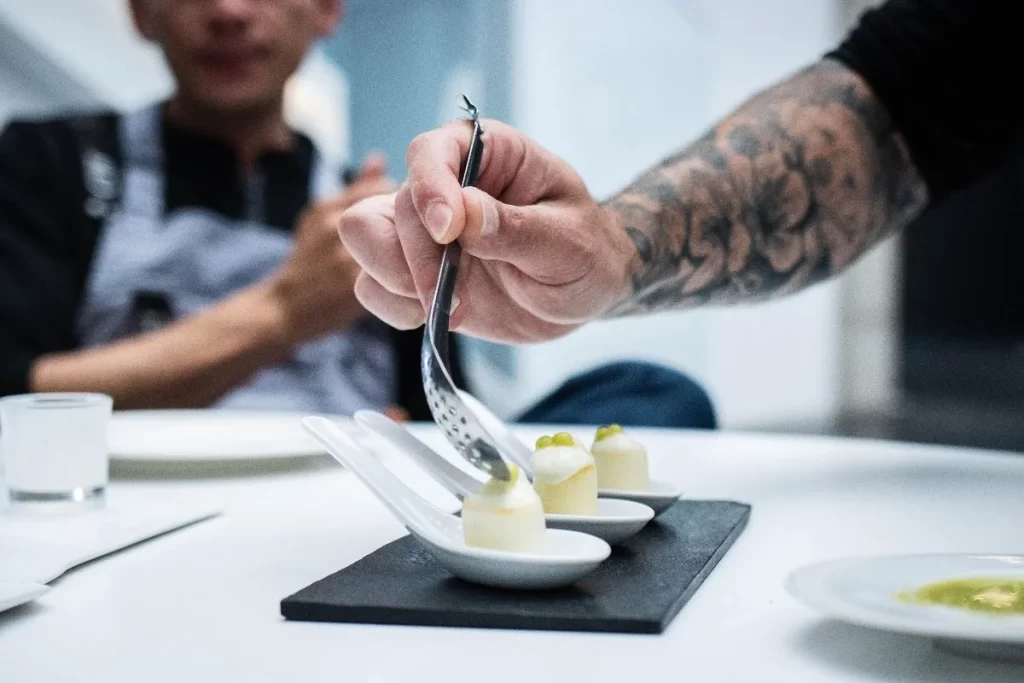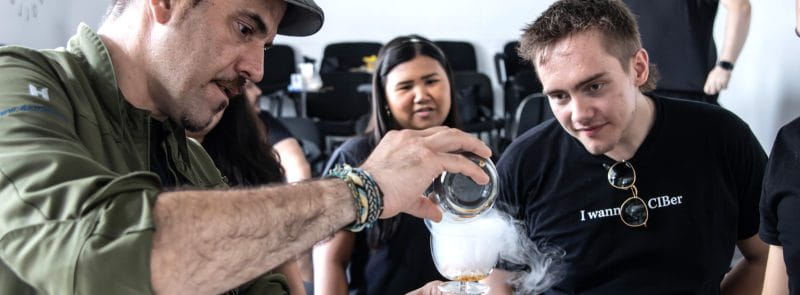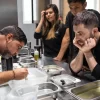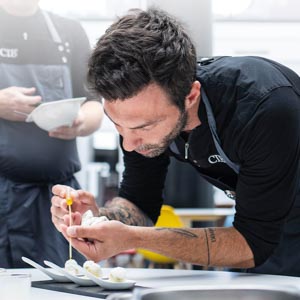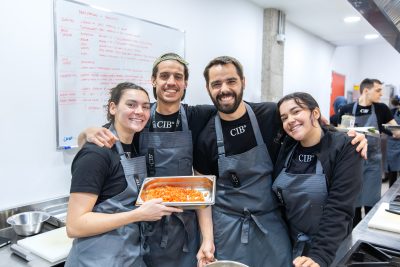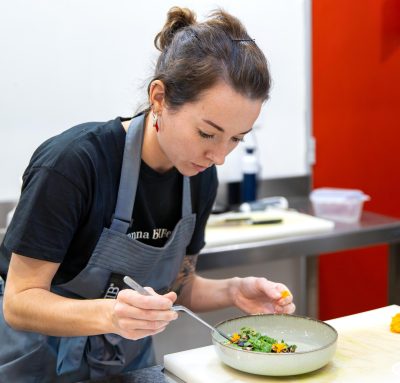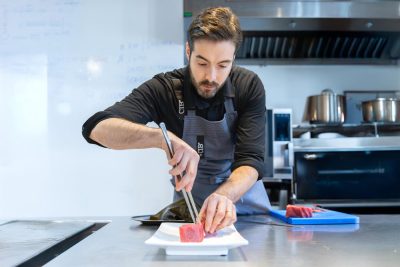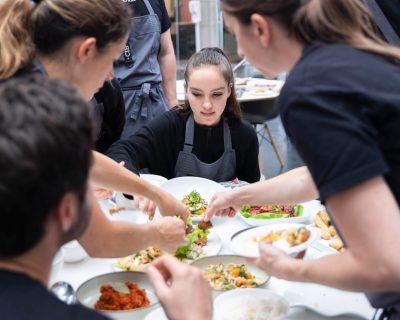To become a molecular gastronomy chef, you must first obtain a formal culinary education and gain experience in a professional kitchen. Some cooking schools offer molecular gastronomy as a specific area of study or as an optional subject.
You can also look for opportunities to work with chefs who specialize in molecular gastronomy and gain hands-on experience practising the techniques and using the ingredients found in this style of cooking. Continuing your education by taking workshops and classes on molecular gastronomy can also be beneficial. It is important to keep in mind that knowing all about molecular cuisine requires a solid understanding of food science and chemistry, so any relevant courses in those areas would be helpful.
What is molecular gastronomy?
Molecular gastronomy is a style of cooking that uses scientific techniques and equipment to manipulate the physical and chemical properties of ingredients to create new and unexpected flavors, textures and presentations. It is also known as “molecular cuisine”.
Some techniques used in molecular gastronomy are:
- Spherification (when a liquid is converted into small spheres that bursts in the mouth).
- Vacuum impregnation
- Lyophilization of foods to preserve them through freezing.
- Using liquid nitrogen to freeze foods.
- Gelling techniques.
- Deconstruction
- Distillation
- Using foaming agents to create foams and airs.
The goal of molecular gastronomy is often to create new and surprising flavor combinations, as well as to play with textures and the visual appearance of dishes. This style of cuisine is usually associated with high-level experimental restaurants, and is less common in traditional or everyday restaurants. But, many of the products we buy in the supermarket nowadays have already undergone a process of R&D that affects their preservation or texture, among other things.
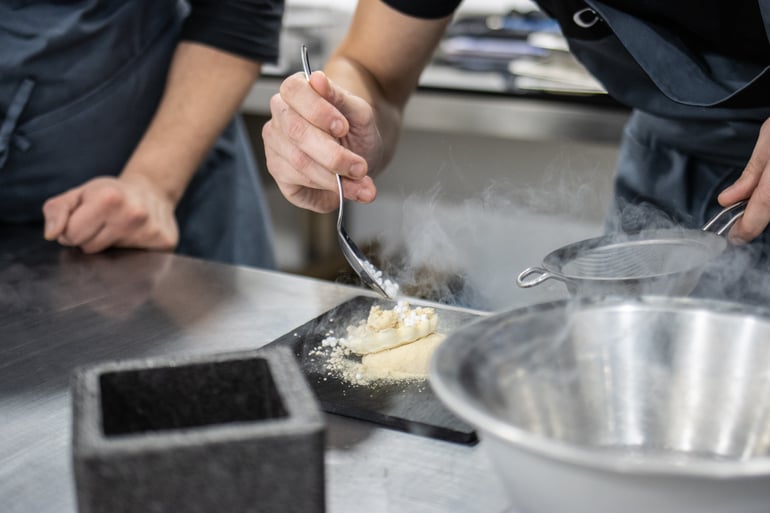
What does it take to become a molecular gastronomy chef?
The field of molecular gastronomy is still relatively new, and the techniques used by chefs are constantly evolving thanks to technology. If you’re interested in learning more about how this type of cuisine can influence your life, read on!
Specific training in molecular gastronomy or a related field (such as food science) is a good start.
You’ll need to be able to think critically about food and food preparation, as well as have a solid background in physics, chemistry, and biology. You will also need experience working with ingredients from different parts of the world and some knowledge of international trade laws, so you don’t break any regulations.
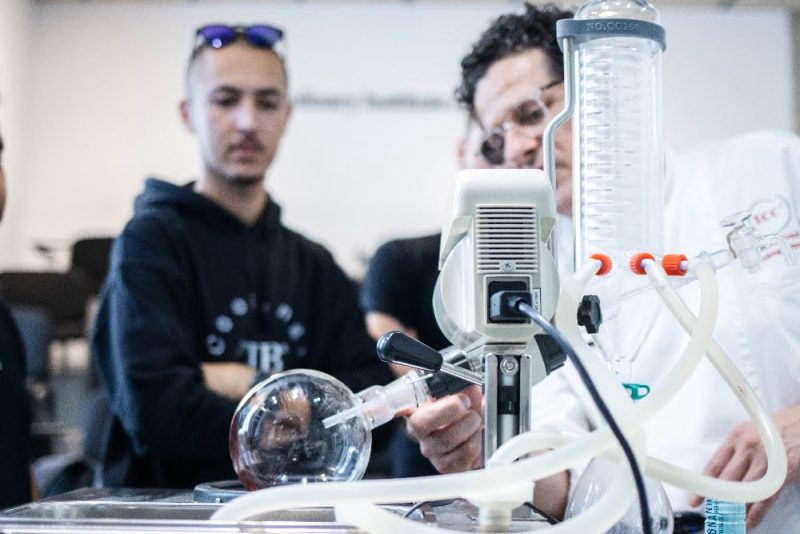
How much can a molecular gastronomy chef earn?
Salaries can vary greatly depending on the type of company, experience, knowledge, and country. For example, in Spain, the average annual salary of a specialist chef with more than 10 years of experience is €72,016 gross per year, in Mexico it is $114,380, and in the U.S. it is $149,500.
| Country | Adverage salary |
| Spain | €72,016 /year |
| United States | $149,500 /year |
| Australia | 170,000 AUD /year |
| France | €90,000 /year |
| Mexico | $114,380 /year |
Source: Glassdoor
Most famous chefs working in molecular gastronomy
Molecular gastronomy has inspired controversy among more traditional diners. However, it is settling down and gaining acceptance as an art form. Moreover, what we can be sure of is that it always attracts a lot of attention in terms of media and chefs’ increasingly striking new creations. Due to their achievements, some have achieved great fame and international recognition.
Some of the most outstanding leaders in the world of molecular gastronomy are:
- Ferran Adrià. Renowned Catalan chef with the highest gastronomic distinctions, who was at the head of the famous restaurant El Bullí until its closure in 2011.
- Andoni Luis Aduriz. His restaurant, Mugaritz, has been in Restaurant magazine’s Top 10 best restaurants in the world since 2006.
- Heston Blumenthal. Celebrated British chef of The Fat Duck restaurant, among others. He has always been committed to the scientific analysis of food.
- Elena Arzak. Renowned Basque chef who runs the prestigious Arzak restaurant, which dedicates great effort to culinary research.
- Thomas Keller. American chef with multiple awards for his restaurants The French Laundry, Per Se and the Bouchon bistros.
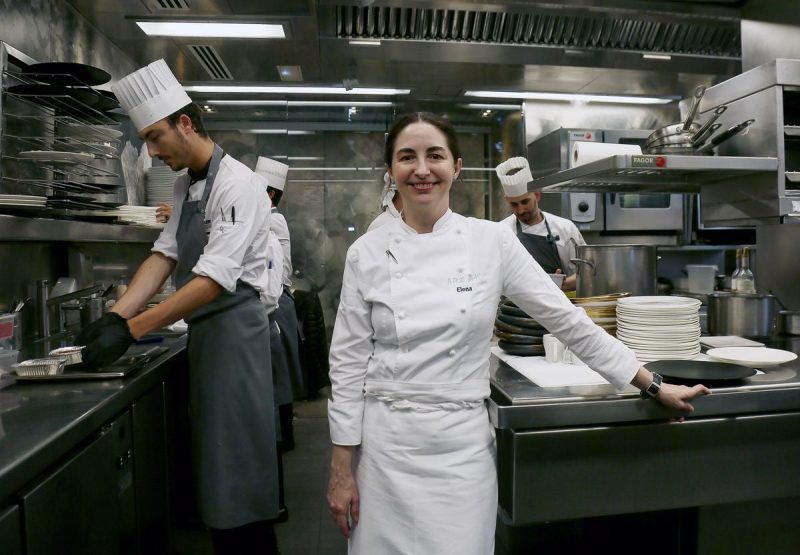
Where to study to become a molecular gastronomy chef?
The world of molecular cuisine is exciting. You will work with the most advanced technology and train with some of the best chefs in the world, while learning how to create delicious dishes and use ingredients you would never have thought of before.
If you are interested in studying molecular gastronomy, here’s what you need to know:First, you should look for programs that offer a combination of culinary arts and science courses. This will provide you with a broad base of knowledge about food production and technology, as well as the tools and techniques you need to succeed as a chef.Second, make sure the program includes working professionals and hands-on experience in state-of-the-art kitchens and equipment. This will give you a real taste of what it’s like to create dishes on a daily basis.
In summary, you have many options if you want to study molecular gastronomy, it all depends on the location, your budget, the teacher that best suits your expectations and the level from which you start. Whatever path you choose, studying molecular gastronomy allows you to access more possibilities. If you want to know more about how to become a specialist molecular gastronomy chef, take a look at our Postgraduate course in Advanced Culinary Techniques

